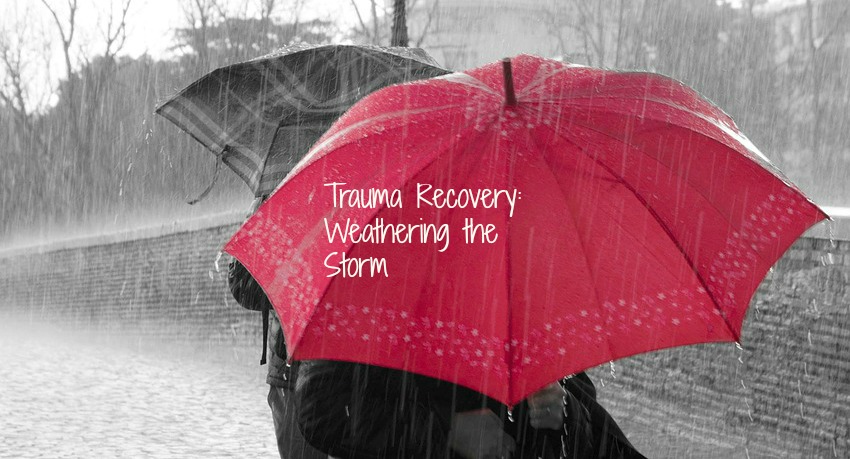Trauma Recovery: Weathering the Storm
Life comes with hardships and traumas, both large and small, that ebb and flow, some more challenging than others. Some individuals are remarkable in their ability to manage these hardships and ultimately use the challenges as catalysts for thriving. These people are examples from which we all can learn and here are just a few of the insights they have to share:
- “Life can be hard but I am strong.” In the face of adversity, or following a trauma, adopting a mindset that focuses on strength rather than focusing on feelings of loss, can help one to feel a sense of pride and accomplishment. It enhances self-esteem and confidence in one’s ability to tackle life’s obstacles. Trauma treatment also helps to foster this mindset when it is just too tough for one to develop alone. It is not a sign of weakness to seek help, but a sign of good self-care and determination to make it through the storm by drawing strength and insight from available resources.
- Allowing oneself the time to grieve the trauma experience, while also knowing when and how to redirect attention from sadness to focusing on the small, simple pleasures of life. So much satisfaction in life can be drawn from gratitude—even in the face of adversity. Balancing gratitude with sadness helps to regulate emotions and foster healthy processing of the experience for a faster recovery. There is an art to riding the wave of grief and yet knowing when and how to set it aside to filter in other more uplifting aspects of life. Learning how to manage these shifts can give you a sense of your inner locus of control making it easier to appreciate the goodness in your life.
- Viewing life as a story. Recognizing that some chapters may be sad or stressful, and there may be traumas large or small, but there are chapters yet to be written and you are the author. You may not be able to control what happens in your environment, but you can choose how you respond. You always have a choice.
- Slow down and take time for yourself. Running at a frenzied pace in avoidance of sad feelings inevitably will catch up with you. Taking time to care for yourself by doing things you enjoy helps to refuel depleted energy that is drained during emotional experiences. Set aside time each day to listen to music you enjoy, soak in a hot bath, take a walk, relax with a cup of tea, or spend quiet time in any other activity you find soothing and peaceful. These relaxing activities help to engage your reasoning skills and gain perspective on your trauma or adverse situation.
- Talk with a good friend. There is nothing quite as nice as support and kind words coming from a dear friend or family member. They may not recognize how difficult things are for you right now, so you may need to reach out to them. People are social creatures and need connection to others. Taking time to make a phone call to share your feelings can be tremendously cathartic.
As awful as it is to experience any kind of trauma, there are ways we can learn to thrive. Adversity challenges us, stretches us and propels us into growth. We are forced to look at ourselves and find our strengths, ultimately bringing into awareness tools we can use for futures challenges. As a famous quote from Louisa May Alcott states, “I am not afraid of storms, for I am learning how to sail my ship.” For more information on the subject of trauma recovery, there are many good books that discuss growth after loss or trauma. A few of my top recommendations are Man’s Search for Meaning by Victor Frankl, who had survived years in a concentration camp later to become a famous psychologist and researcher; Getting Past Your Past, by Francine Shapiro Ph.D, who battled cancer and ended up founding the ground breaking trauma protocol, EMDR Therapy; and, Help Yourself, by Dave Pelzer, a remarkable individual who endured years of emotional and physical abuse as a child and is now a leading author and motivational speaker. The human spirit is remarkable and learning from others’ challenges can be inspiring and helpful for each of us as we learn to weather the storm.
Click here for more information on Grief Counseling.





